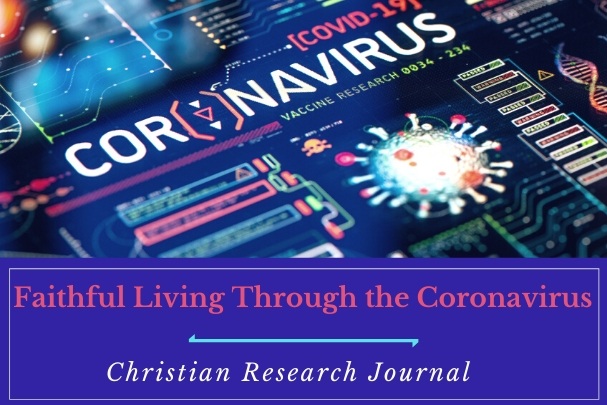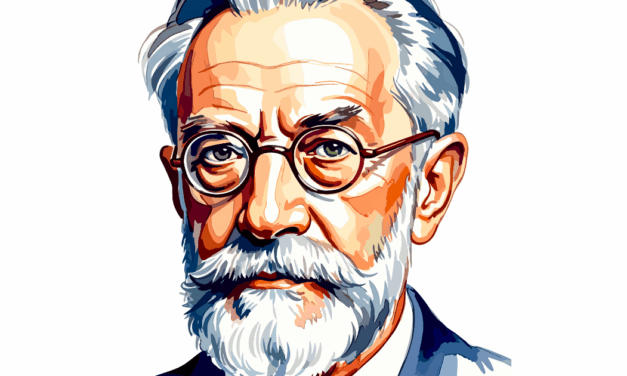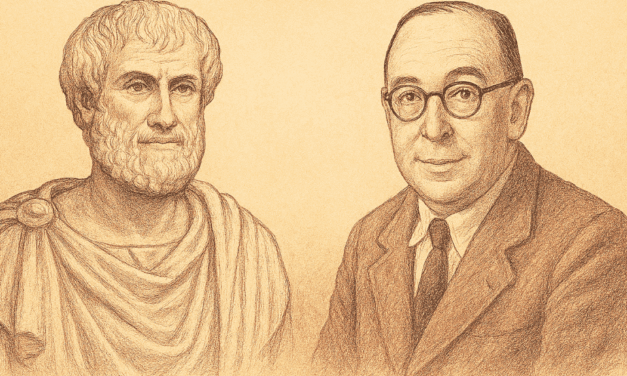Listen to this article (11:18 min)
The following article was an Online-exclusive. For the purposes of academic citation, it would be considered part of Issue 43 No. 01.
Leave a tip. A tip is just a small amount, like $3 or $5, which is the cost for some of a latte, lunch out, or coffee drink. To leave a tip, click here.
“These are the times that try men’s souls,” wrote Thomas Paine in his rousing call to Americans to fight for independence. “The Crisis” was the title of Paine’s work from 1776; and now we face another crisis — not a war of man against man, but of a virus warring against all of humanity. Previous scares about Ebola, swine flu, and other viruses seem — to Americans, at least — small compared to the threat of the novel coronavirus (COVID-19), which is terrifying the globe as I write.
You will read nothing from me about how bad this pandemic will get or about the political policies needed to address it, since I have no expertise in these areas. I will instead consider a few principles for faithful living. How might we keep a warm heart and a cool head during this crisis, when what we thought was solid seems to be melting away?
Ecclesiastes tells us that life “under the sun” is a hevel — a vapor, a mist, a Hebrew word sometimes poorly translated as “vanity” (NIV). Through his wizened years, the Preacher learned that hopes are often dashed, injustice seems to prevail, work is often not proportionate to reward, and no one knows what the future holds.
I have seen something else under the sun:
The race is not to the swift
or the battle to the strong,
nor does food come to the wise
or wealth to the brilliant
or favor to the learned;
but time and chance happen to them all. (Ecclesiastes 9:11)1
My first wife’s grandfather died from the 1918 influenza outbreak. She never met him, and her grandmother remained a widow the rest of her life. The times and seasons are in God’s hands (Ecclesiastes 3:1–7; Ephesians 1:11). Life will be short, fragile, and unpredictable until Christ comes again to set the world to rights once and for all. We must put our treasures in heaven, where they are safe. Still, come what may, we can lead faithful and fruitful lives as Christians. How might we do this?
First, we should remember no virus is stronger than the Lord of the cosmos, and He is our Lord.
Who is he, this King of glory?The Lord Almighty—he is the King of glory. (Psalm 24:10)
Nothing takes our all-knowing God by surprise and He remains sovereign over all. As Jesus said:
I tell you, do not worry about your life, what you will eat or drink; or about your body, what you will wear. Is not life more than food, and the body more than clothes? Look at the birds of the air; they do not sow or reap or store away in barns, and yet your heavenly Father feeds them. Are you not much more valuable than they? Can any one of you by worrying add a single hour to your life? (Matthew 6:25–27)
We should fear God, but not obsess about circumstances. As people panic, we can remain calm by trusting our omnicompetent God. Moreover, we can grow as Christians through these trials.
Consider it pure joy, my brothers and sisters, whenever you face trials of many kinds, because you know that the testing of your faith produces perseverance. Let perseverance finish its work so that you may be mature and complete, not lacking anything. (James 1:2–4)
Thus, we take heart and pray for all involved in this pandemic.
Second, we need to be wise in protecting ourselves, our friends, and our families from the new coronavirus. The Bible never speaks against rational self-interest but assumes it (see Ephesians 5:29). We should love our neighbors as ourselves, which means taking a realistic account of risks and benefits in a crisis.
When the risk to our life or health is high, we should avoid dangerous situations unless there is a compelling reason otherwise. So, even if the general risk of getting the coronavirus is low (and even lower of dying from it), we should take precautions against infection. It is not brave to pretend otherwise. That is foolish because the possibility of a severe outcome swamps the low percentage of risk.
For example, if a skin abnormality is likely not cancer, you still should see a doctor, since you need to rule out the worst case. If the engine of your small plane sounds abnormal, but is probably functional, you do not fly until you verify the soundness of the engine. We face risks every day, but there is no need to increase risks and so jeopardize ourselves and others — that is, unless we discern the need to make such a sacrifice in order to serve someone else.
Further, there is no place for sunny optimism with risk-taking of this magnitude. We should assume the worst, given the risk, and act accordingly. Procedural pessimism — which is compatible with strong faith — is in order until disproved by the facts. By all means, pray and hope for the best. But plan for the worst. That is the loving thing to do.
However, it is not loving to hoard goods in a spirit of panic. This is both selfish and unseemly for a follower of Jesus, whose life is to be characterized by “self-control” (Galatians 5:23). The great British preacher Martin Lloyd Jones said that faith was “a refusal to panic.”
Third, we should cancel or postpone church services and other meetings because of the concern with spreading the coronavirus. But we can do so without giving up on life-giving fellowship. I have long warned of replacing our embodied and face-to-face life with communications media, since so much is lost.2 However, communications media do extend our informational reach, even as they reduce our existential presence. Let me explain.
Denver Seminary, where I teach, rightly suspended residential classes and transferred all classes to online. So, for now, I cannot have any physical contact with any of my students, since I am not there with them in the classroom. Recently, a student and I prayed for another student in distress. We asked if we could hold her hand as we prayed. She agreed and was grateful.
This is impossible online. However, in this fallen world, there are times — as with the coronavirus crisis — when physical presence should or must be minimized. We must practice “social distancing” in a physical way. I recently conducted my first class live through the Zoom technology and, to my surprise, it went well. It was certainly better than no class at all.
Church service can meet online for worship and teaching. My church has encouraged us to meet at home during the regular time and to follow an order of service that was sent to congregants through email. Of course, the fellowship will be restricted, and Communion cannot be celebrated as a congregation. Nevertheless, since video streaming detaches sound and images from personal presence, it allows their more widespread dissemination and without the threat of physical infection.
Fourth, we should consider the need to forge more intentional community in the church and with our neighbors. When businesses shut down, when goods become scarce, and when basic services are threatened, we are thrown back to our need to deeply care for one another. Americans can isolate themselves as long as life is normal. We go to work. We get our food. We go to the doctor. We attend a movie. We take a flight to another state or country. We don’t worry too much about our income or our savings. Now, much of that has changed.
It shouldn’t take a global crisis to teach us about the biblical vision of community, but here we are. As Francis Schaeffer wrote forty years ago, too many Americans are driven by two overriding concerns — personal peace and affluence. If we are secure and have a decent income, we are fine. Just leave us alone. That has never been true, since the kingdom of God demands so much more of us! But especially when life as normal is threatened, we should rethink how we live our lives together.
The early church emerged without institutional support, social prestige, or financial clout. It was considered more a cult than anything else. Christians had to walk by faith and exercise radical love. Here is what Luke tells us about them.
They devoted themselves to the apostles’ teaching and to fellowship, to the breaking of bread and to prayer. Everyone was filled with awe at the many wonders and signs performed by the apostles. All the believers were together and had everything in common. They sold property and possessions to give to anyone who had need. Every day they continued to meet together in the temple courts. They broke bread in their homes and ate together with glad and sincere hearts, praising God and enjoying the favor of all the people. And the Lord added to their number daily those who were being saved. (Acts 2:42–47)
I don’t have to persuade my readers of the importance of apostolic teaching, glad fellowship, common meals (perhaps including Communion), and prayer. But “having all things in common” may rub us the wrong way. What about the right to private property? I do not take this passage to mandate common ownership of property in the church or anywhere else. It certainly does not support socialism, since this situation was voluntary and not mandated by the state. However, the situation in the early church just after Pentecost does speak against greed and speaks for generosity in times of need.
If the established patterns of life break down substantially (and I am not saying they will), then the church needs to make sure that no one is bereft of basic human needs. We should be thinking this way at all times, but especially when scarcity becomes a possibility. No Christian should go without food or shelter when other Christians have the means to help. Those who are healthy and less prone to serious illness from the coronavirus should consider assisting those in high risk groups, such as the elderly and those with lung problems. By doing this, we are serving Jesus Himself (Matthew 25:31–46).
For now, we live in trying times. Businesses are closed indefinitely. Schools and churches have to meet online. People are getting seriously ill and dying at alarming rates around the world. We refrain from embracing those we love. What will tomorrow or next week or next month bring? Will life ever go back to normal? I do not know. However, every Christian knows that Jesus Christ is the same yesterday, today, and forever and that He will never leave us or forsake us (Hebrews 13:5–8). He will also give us the wisdom and strength to live well in dark times.
Douglas Groothuis is Professor of Philosophy at Denver Seminary.
Notes:
- Scripture quotations are taken from the New International Version (NIV).
- See Douglas Groothuis, The Soul in Cyberspace (Baker Books, 1997).








